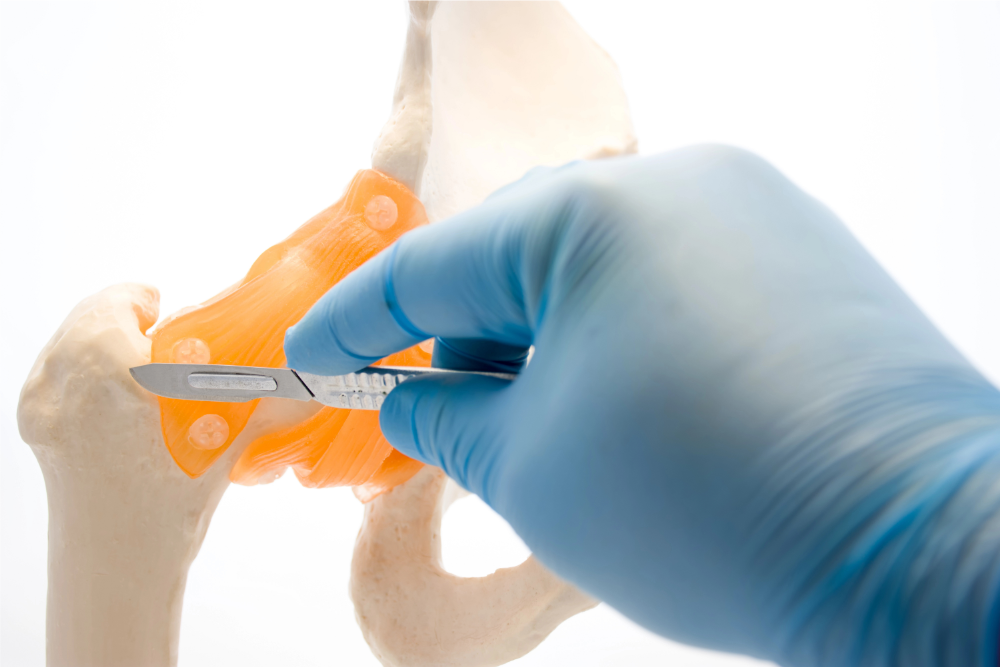Top 8 Questions to Ask Before Your Joint Replacement Surgery
The number of joint replacement surgeries performed each year continues to rise as the population ages and more people seek relief from chronic joint pain.
Hip, knee, and shoulder replacements are now common procedures that can significantly improve quality of life. An orthopedic surgery consultation is a vital first step on your journey to joint replacement.
Here are the questions you need to be asking your orthopedic surgeon in Los Angeles when you go in for a consultation.
Question 1: Is Joint Replacement the Best Option for Me Right Now?
Before committing to surgery, it’s essential to explore all available treatment options. Your surgeon should discuss a range of approaches, including:
Conservative treatments
These may include physical therapy, injections (corticosteroids or hyaluronic acid), and medications like pain relievers or anti-inflammatory drugs. Often, a combination of these can effectively manage joint pain and improve function.
Signs that surgery is the most appropriate next step
Surgery might be recommended if conservative treatments fail to provide adequate relief, if you experience severe pain that limits daily activities, or if joint damage is extensive, as seen on X-rays or other imaging studies.
Weighing quality of life vs. surgical risks
It’s essential to weigh the potential benefits of surgery, including pain relief and improved mobility, against the associated risks, such as infection, blood clots, and implant complications. Your surgeon can help you assess whether the potential improvement in your quality of life outweighs the risks.
Question 2: What Type of Joint Replacement Procedure Will I Have?
Joint replacement surgery isn’t a one-size-fits-all procedure. There are several variations, and your surgeon will recommend the most suitable one for your specific condition:
Total vs. partial joint replacement
In a total joint replacement, the entire damaged joint is replaced with an artificial implant. In a partial replacement, only the most damaged part of the joint is replaced. Partial replacements are less invasive but not always appropriate for severe or widespread joint damage.
Cemented vs. uncemented implants
Implants can be fixed to the bone using cement or can be uncemented, relying on bone growth to secure them in place. The choice depends on factors like your age, bone quality, and the specific joint being replaced.
Minimally invasive vs. traditional techniques
Minimally invasive surgery involves smaller incisions and less tissue damage, potentially leading to faster recovery. However, it may not be suitable for all patients or all types of joint replacements.
How surgical approach affects recovery
Minimally invasive surgery often results in less pain and a shorter hospital stay, while traditional surgery may require a longer recovery period.
Also Read: Top 5 Benefits of MLS Laser Therapy for Achilles Tendonitis Relief
Question 3: What Are the Risks and Potential Complications?
Like any surgical procedure, joint replacement surgery carries certain risks. It’s crucial to have an open discussion with your surgeon about these, including infection, blood clots (deep vein thrombosis or pulmonary embolism), implant loosening or failure, nerve or blood vessel damage, and dislocation of the joint.
Ask your surgeon about their specific complication rates for the procedure you’re considering. This can give you a better understanding of your individual risk.
Your surgeon and the medical team will take precautions to minimize these risks. These may include administering antibiotics before surgery, using blood-thinning medications, and employing meticulous surgical techniques. Proper aftercare and adherence to your surgeon’s instructions are crucial for minimizing complications.
Question 4: What Results Can I Expect and How Long Will They Last?
While most patients experience significant pain relief and improved mobility after surgery, the extent of improvement can vary. Discuss what level of activity you can realistically expect to achieve.
Also, the average lifespan of a joint replacement implant is typically 15 to 20 years. However, this can vary depending on factors like your activity level, weight, and the type of implant used. Be sure to ask your surgeon about the expected longevity of your specific implant.
Your surgeon can help you set realistic goals based on your age, overall health, and lifestyle. While you may be able to return to many of your favorite activities, some high-impact activities may still be limited.
Question 5: What Will Recovery Look Like, and How Long Will It Take?
Ask your surgeon how long you’ll need to stay in the hospital or if you’re a candidate for outpatient surgery. The length of stay can vary depending on the type of surgery and your overall health.
Your surgeon and physical therapist will provide a timeline for regaining mobility, starting physical therapy, and gradually returning to your daily activities. This timeline will vary, but it’s important to have a general idea.
Don’t forget to discuss pain management strategies with your surgeon. This may include medications, nerve blocks, and other techniques to keep you comfortable during recovery.
Finally, ask your surgeon about any red flags to watch for during your recovery that would require immediate medical attention, such as signs of infection, blood clots, or implant dislocation.
Also Read: Common Causes of Shoulder Pain and Injuries
Question 6: What Should I Do to Prepare for Surgery?
These joint surgery preparation tips are crucial for a successful outcome:
Number one, know that first you’ll likely need to undergo preoperative testing, including blood tests, X-rays, and an EKG, to ensure you’re healthy enough for surgery.
Your surgeon may recommend pre-operative physical therapy to strengthen your muscles and improve your range of motion. They may also advise you to make lifestyle changes like quitting smoking or losing weight to reduce the risk of complications.
You’ll also need to adequately prepare your home for your return after surgery, i.e., arranging for assistive devices (walker, raised toilet seat), modifying your living space, and setting up a support system.
Discuss with your surgeon which medications you should stop or adjust before surgery, as some can increase the risk of bleeding or other complications.
And finally, surgery can be a source of anxiety. Talk to your surgeon about any concerns you have and explore ways to manage your anxiety, such as relaxation techniques or support groups.
Question 7: What Support Will I Need After Surgery?
Having a good support system is crucial for a successful recovery, so discuss the role of caregivers and family members in your early recovery. You’ll likely need help with daily activities, transportation, and emotional support.
Understand the importance of follow-up visits with your surgeon and attending physical therapy sessions as prescribed. These are essential for monitoring your progress and ensuring proper healing.
Remember to ask your care team about the availability of post-operative support, such as phone consultations, support groups, or home health services.
Lastly, discuss with your surgeon and physical therapist when you can expect to return to driving, work, or other recreational activities. This will depend on your individual progress and the type of surgery you had.
Know what to expect from joint replacement surgery
Asking the right questions before your joint replacement surgery will help you feel more prepared, confident, and in control of your care.
Remember, your surgeon is your partner in this journey. Don’t hesitate to ask for clarification, seek guidance, and express any concerns you may have. Open communication and a collaborative approach will help you achieve the best possible outcome.
For joint replacement surgery in Los Angeles, schedule an appointment today with an orthopedic surgeon at Urgent Orthopaedic Care.




